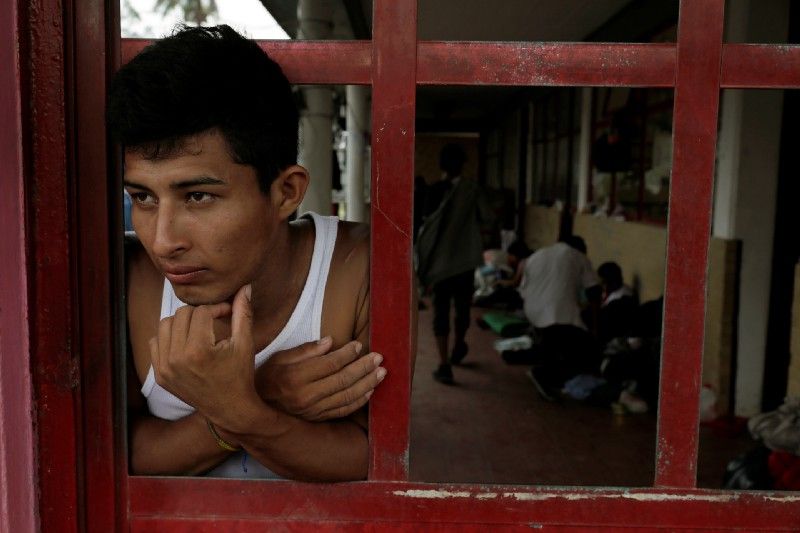April 06, 2018
Last week, we noted that a “refugee caravan” made up of hundreds of migrants from Honduras, Guatemala, and El Salvador — many of them unaccompanied children — are walking through Mexico toward the US border. Along the way, activists are coaching them on how to apply for political asylum in the US. President Trump has heard the news. Last weekend, he tweeted this: “Getting more dangerous. “Caravans” coming. Republicans must go to Nuclear Option to pass tough laws NOW.”
The Mexican government said Tuesday it will disperse the Refugee Caravan, but that it would issue one-year humanitarian visas to the most vulnerable members of the group. Others can submit applications within the month to stay in Mexico. The rest must leave the country within 20 days.
Trump tweeted yesterday that “The Caravan is largely broken up thanks to the strong immigration laws of Mexico and their willingness to use them so as not to cause a giant scene at our Border.” But this drama is not finished; some migrants say they’ll continue on toward California.
Look at this problem from various angles.
From Trump’s point of view: If the president sent a message that anyone fleeing violence in Central America will be given sanctuary in the US, the US would face a tidal wave of asylum seekers. (Cue the obligatory Angela Merkelreference.) Trump also knows, probably because he’s been told, that the centrality of border security for many of his diehard backers ensures that an influx of Honduran migrants would dismantle his political base overnight. He also wants to make clear that Mexico can’t ignore its own laws on migrants crossing its borders to reach the US.
From Mexico’s point of view: Mexico doesn’t want a “giant scene at the border.” Its government understands all too well the violence these migrants are trying to escape. (2017 was the most violent year of crime in Mexico since government began keeping records in 1997.) But it is legally bound to enforce its own immigration rules, and its government is still trying to strike a deal on renegotiation of NAFTA, with much less leverage than Trump has. Forcing the US president into a political crisis won’t help.
From the migrants’ point of view: High-powered weapons continue to flow from the US into Mexico and Central America, helping criminal gangs outgun police, killing civilians caught in the crossfire, and pushing rates of violent crime higher than just about anywhere else on Earth. There are many reported cases of children forced to choose between joining a gang and death for their entire families. If people can’t be safe in their own communities, they will seek safe haven where they can find it.
How many of these people will reach the US border? Stay tuned.
More For You
- YouTube
In this episode of "ask ian," Ian Bremmer breaks down the growing rift between the US and Canada, calling it “permanent damage” to one of the world’s closest alliances.
Most Popular
Two Iranian motorcyclists stop in front of the burned East Tehran General Directorate of Tax Affairs headquarters in Tehran, Iran, on January 21, 2026.
Photo by Morteza Nikoubazl/NurPhoto
30,000: The estimated death toll in Iran during the protests at the start of the year, per local health officials, underscoring the scale of the Islamic Republic’s crackdown on its own citizens.
The World Health Organization (WHO) headquarters is seen in Geneva, Switzerland, January 28, 2025.
REUTERS/Denis Balibouse
Seventy-eight years after helping found the World Health Organization (WHO), the United States has formally withdrawn from the agency, following through on a pledge President Donald Trump made on his first day back in office.
© 2025 GZERO Media. All Rights Reserved | A Eurasia Group media company.
